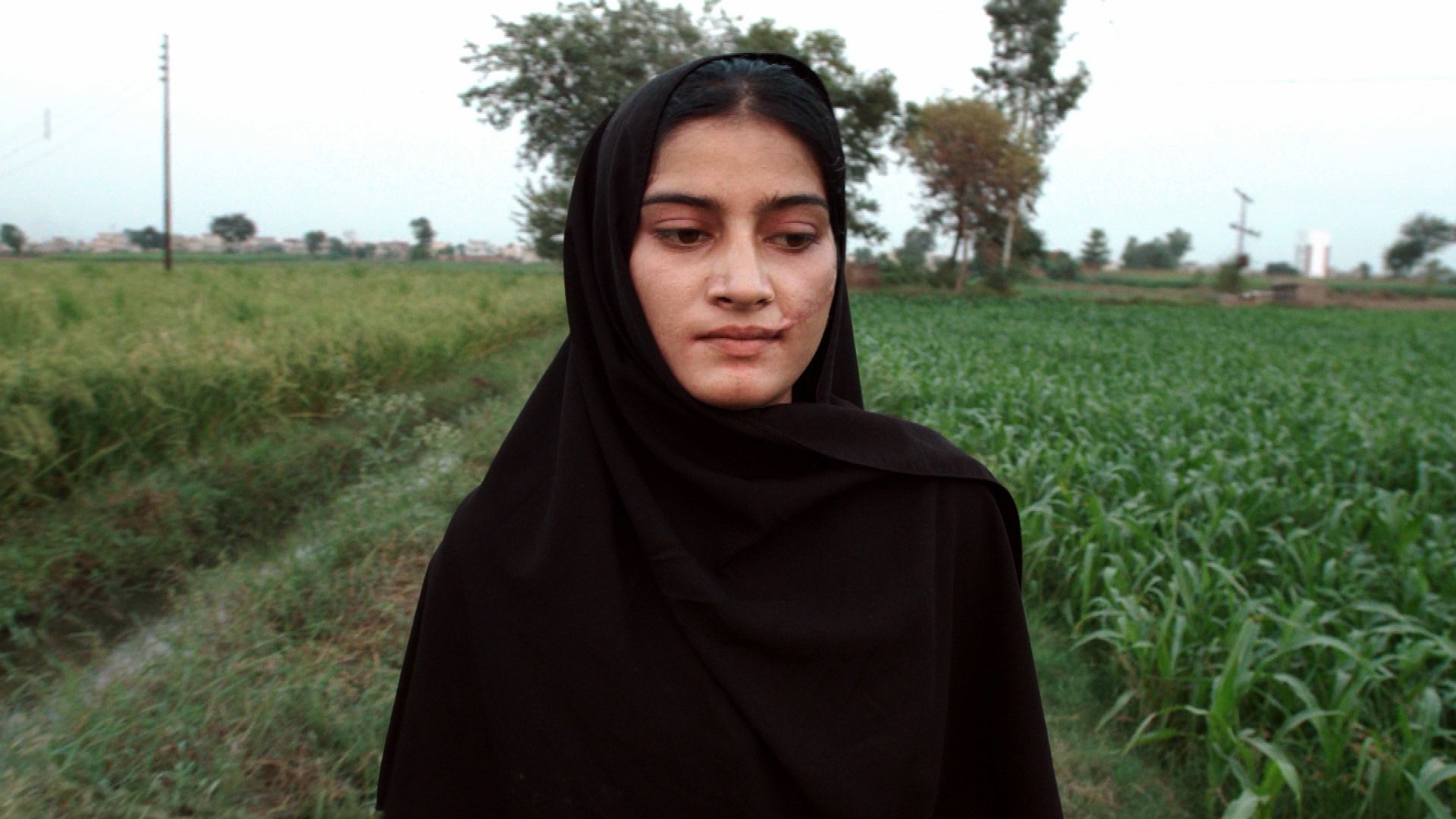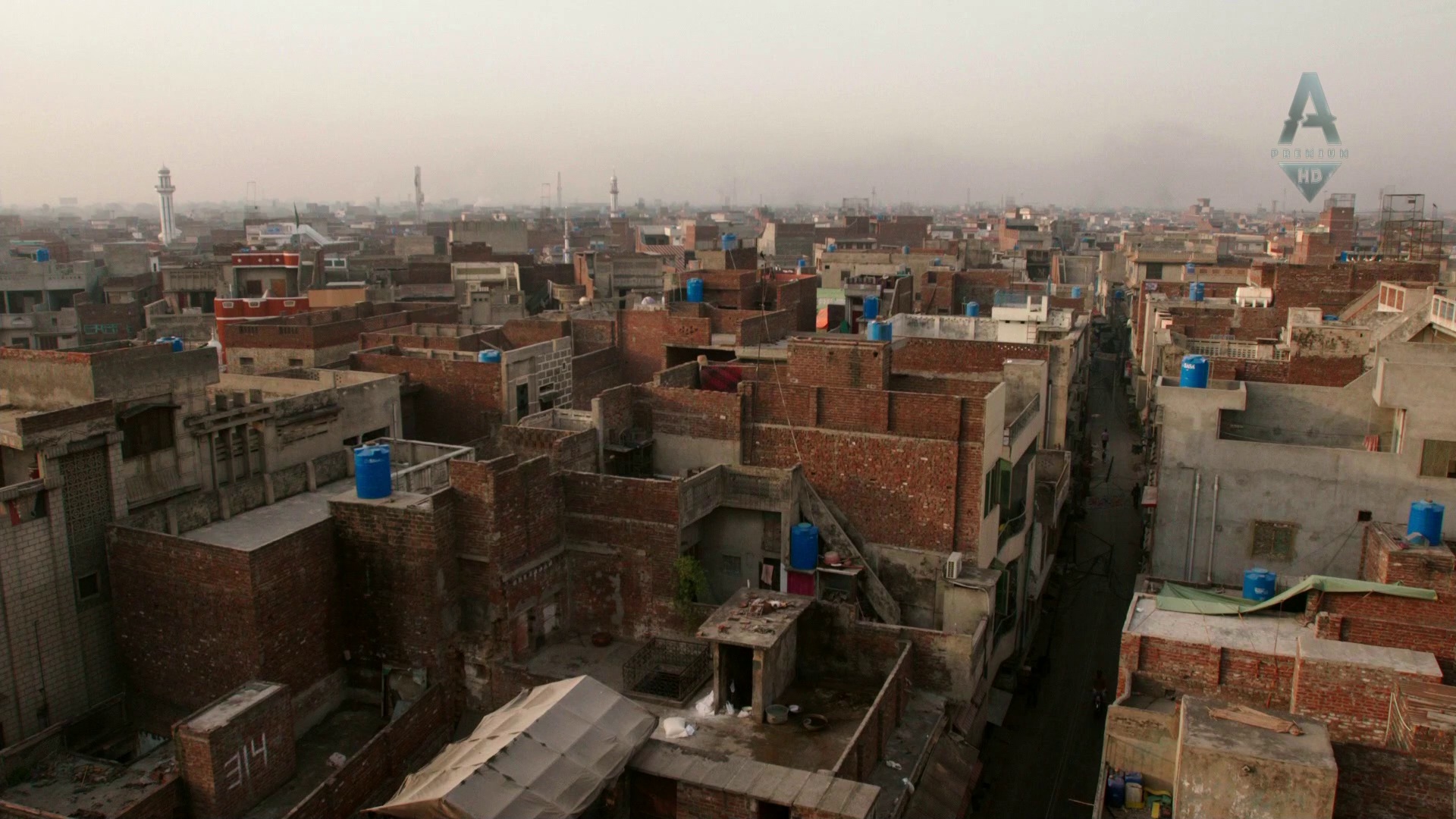The winner of last year’s Academy Award for Documentary (Short), Sharmeen Obaid-Chinoy’s A Girl In The River is a 40-minute gut-punch. As cinema, it’s not particularly groundbreaking. As a bracing call to arms against the institution of honor-killing, specifically in Pakistan, it’s entirely effective.
Obaid-Chinoy’s film focuses on a single case, unfolding as both police procedural and horror story.
It’s a simple, rending story. Her protagonist is a woman named Saba, who had the misfortune to find herself in love with a man her family viewed as beneath their station. The two eloped, but didn’t spend a full day together before Saba’s father and uncle retrieved her, swore they meant her no harm, and promptly shot her in the face. Her body was stuffed into a sack and tossed into the dark water of a river at night.
Incredibly, Saba survived. The bullet, intended for her brain, actually only grazed her cheek — she was disfigured but alive, and managed to pull herself from the weeds of a shallow grave.
 A Girl in the River begins after the fact, interviewing Saba from her hospital bed. Her survival presents a legal dilemma. Under Pakistani law (at the time of filming, at least), honor killing is viewed through a different lens than other attacks. Her attackers — that is, her close relatives — may be exonerated with her forgiveness. Saba is unwilling to do so, and her lawyer and the criminal investigator, both of whom barely conceal their disgust for a system that would allow this situation, support her. But local elders strongly endorse reconciliation. After all, everyone has to live near each other in the neighborhood.
A Girl in the River begins after the fact, interviewing Saba from her hospital bed. Her survival presents a legal dilemma. Under Pakistani law (at the time of filming, at least), honor killing is viewed through a different lens than other attacks. Her attackers — that is, her close relatives — may be exonerated with her forgiveness. Saba is unwilling to do so, and her lawyer and the criminal investigator, both of whom barely conceal their disgust for a system that would allow this situation, support her. But local elders strongly endorse reconciliation. After all, everyone has to live near each other in the neighborhood.
Saba’s uncle is stridently unrepentant, believing he and his brother to have done right. Her sister echoes their views. Saba’s mother believably protests she knew nothing about it, would never have sanctioned it, but still bemoans the willfulness of a daughter who didn’t abide by custom. From his jail cell, her father is righteous and indignant, and untroubled: “I have other daughters,” he proclaims.
 This is a lot to take. Obaid-Chinoy’s indignation in A Girl in the River is clear through the structure of the narrative, and even occasionally compelling in its visualization (cinematographer Asad Faruqi gets some impressive shots of rooftops and claustrophobic villas, but is mostly content with static framing as people tell their stories, declaim, and alternately accept and evade responsibility).
This is a lot to take. Obaid-Chinoy’s indignation in A Girl in the River is clear through the structure of the narrative, and even occasionally compelling in its visualization (cinematographer Asad Faruqi gets some impressive shots of rooftops and claustrophobic villas, but is mostly content with static framing as people tell their stories, declaim, and alternately accept and evade responsibility).
At its heart, A Girl In The River is an examination of the colliding forces of a kind of traditionalism and a kind of modernity. There’s a sense that the film elevates police and statist forces to a position of righteousness they might not always occupy, but there’s little reason to doubt the sincerity of the advocates in Obaid-Chinoy’s film. Indeed, many more are needed. The overt patriarchy on display is painful.
Since the film’s release, some things have changed — a groundbreaking law has been passed, despite continuing opposition, which Pakistani Prime Minister Nawaz Sharif explicitly attributed to the film. Others have not: as recently as May, a horrific example made the international news — notable, given that many cases apparently go unreported even locally. “In 2014 about 1,000 women died in honour-related attacks and 869 in 2013,” the BBC reports.
When focusing on any given atrocity elsewhere in the world, there’s a danger of exocitizing it. Of imagining that this, this, is something we could never do (whoever “we” is supposed to be in that scenario). This is real, and worth remembering.
But it also does nothing to diminish the horror of the atrocity itself, or the need for solidarity, and outrage. A Girl In The River is a specific form of advocacy documentary, crafted by someone familiar with local nuances, and it should infuriate anyone and everyone.
Watch Sharmeen Obaid-Chinoy’s powerful acceptance speech below.

